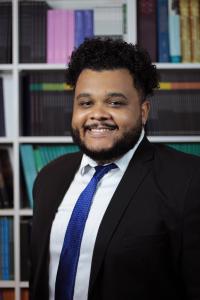Event
Details
The debate in international relations has traditionally revolved around the desire for reform of the global order, as advocated by Liberalism, and the preeminence of the logic of power espoused by Realism. Within this context, Liberalism has long been a fundamental paradigm for the promotion of peace, insofar as it postulates that war should always be the exception rather than the rule in international relations. Three main solutions sponsored by Liberalism have permeated the search for the mitigation of interstate conflicts: the creation and maintenance of multilateral international organizations, the defense of economic interdependence, and the expansion of the democratic system. Once again, however, the liberal formula has proven unable to avoid war, this time in the very heart of Eurasia.
The world is currently witnessing the restructuring of global power due to the escalation of Sino-American tensions, which gives rise to a new era in the international system. Nevertheless, as the geopolitical chessboard has increasingly called into question the efficiency of an order based on rules, global challenges require more cohesion among actors, and the defense of international rules capable of ensuring peace.
The Forte International Security Conference is a forum for a bi-regional dialogue that brings together decision-makers, diplomats, representatives of the Armed Forces, and academics from Latin America and Europe to stimulating debate on a fair and peaceful international system. Throughout its twenty-year history, the “Forte Conference” has facilitated a wide range of relevant debates, in addition to strengthening an international network comprised of high-ranking members. In view of the challenges facing this new potential geopolitical order, this year the Conference will tackle the topic “The Changing Global Order: Facing the Perfect Storm.” Therefore, the Keynote Speech on the opening panel will kick off the main inquiry, providing the backbone of the whole conference: What is the role of Latin America and Europe in a Changing Global Order?
We will first outline a perspective on the status of multilateralism in light of multiple simultaneous challenges in order to ascertain the role that international organizations may still play in this process (Panel 1). Thereafter, we will carry out a debate on the current state of the global economy and the strategic partnerships that have arisen in the face of a new scenario epitomized by traditional warfare marked by transversal issues, such as economic sanctions, attacks on critical infrastructures, and a reduction in the supply of essential commodities (Panel 2). As we are witnessing a traditional war with the use of new technologies, the third panel will foster a debate on the current topic of artificial intelligence and its ethical implications, as well as the need to implement suitable regulations for its development (Panel 3). Lastly, we will bring the Conference to a close by questioning the vision of systemic rivalry. In other words, to what extent does it make sense to frame the current international system as a struggle between democracies and autocracies, and what are the limitations inherent to this vision (Panel 4)? In view of so many statements and queries, it is possible to argue that the current spike in geopolitical tensions has confronted us with a perfect storm. Hence, what would be the role of Latin America and Europe in this scenario?
Registration HERE and the venue is subject to capacity.
Agenda
01 JUNE 2023
MASTER OF CEREMONIES
Ariane Costa, Project Manager of the Konrad Adenauer Foundation (KAS) in Brazil
WELCOME SPEECH
Ricardo Piquet, Founder and President of the Institute for Development and Management - IDG / Museu do Amanhã
OPENING REMARKS – 14:00-14:15 (CEST/UTC+2)
Anja Czymmeck, Director of the Konrad Adenauer Foundation in Brazil
José Pio Borges, Chair of the Board of Trustees, Brazilian Center for International Relations
Ignacio Ybáñez, Ambassador of the European Union to Brazil
KEYNOTE SPEECH – 14:15-15:30 (CEST/UTC+2)
WHICH ROLE FOR LATIN AMERICA AND EUROPE IN THE CHANGING GLOBAL ORDER?
Carlos Márcio Cozendey, Secretary of Multilateral Political Affairs of the Brazilian Ministry of Foreign Affairs
Javier Garcia Duchini, Minister of National Defense of Uruguay
Enrique Mora, Deputy Secretary General and Political Director of the European External Action Service (EEAS)
Bruno Kahl, Presidente do Serviço Federal de Inteligência da Alemanha | President of the German Federal Intelligence Service
Moderator: Leila Sterenberg, Journalist expert in International Politics
BREAK TIME 15:30-15:45 (CEST/UTC+2)
PANEL 1 – 15:45-17:00 (CEST/UTC+2)
INTERNATIONAL ORGANIZATIONS FACING THE PERFECT STORM: THE LONG ROAD TO GLOBAL PEACE
Belén Martínez Carbonell, Managing Director for the Global Agenda and Multilateral Relations of the European External Action Service (EEAS)
Benedetta Berti, Head of Policy Planning at the Office of the Secretary General at the North Atlantic Treaty Organization (NATO)
Amena Yassine, Brazilian diplomat and expert on international security
Moderator: Feliciano de Sá Guimarães, Professor at the University of São Paulo (USP) and Academic Director at the Brazilian Center for International Relations (CEBRI)
PANEL 2 – 17:00-18:00 (CEST/UTC+2)
GLOBAL ECONOMY AND STRATEGIC PARTNERSHIPS IN TIMES OF WAR
Veronique Lorenzo, Head of Division for South America of the European External Action Service (EEAS)
Henning Speck, National Security Advisor to the CDU/CSU Parliamentary Group in the German Bundestag
Moderator: Roberto Jaguaribe, Ambassador of Brazil to Germany and Trustee at the Brazilian Center for International Relations (CEBRI).
CLOSING - 18:00 (CEST/UTC+2)
02 June 2023
Welcome – 14:00-14:05 (CEST/UTC+2)
MASTER OF CEREMONIE
Ariane Costa, Project Manager of the Konrad Adenauer Foundation (KAS) in Brazil
PANEL 3 – 14:05-15:20 (CEST/UTC+2)
THE CHANGING GLOBAL ORDER IN THE ARTIFICIAL INTELLIGENCE ERA: CHALLENGES AND PERSPECTIVES
Miriam Wimmer, Director of the Brazilian National Data Protection Authority (ANPD)
Serap Güler, Member of the Defense Committee for the CDU/CSU Parliamentary Group in the German Bundestag
Juha Heikkilä, Adviser for Artificial Intelligence in the European Commission Directorate-General for Communications Networks, Content and Technology
Moderator: Antônio Jorge Ramalho, Professor at the University of Brasília (UnB) and expert in International Security and National Defense
BREAK TIME 15:20-15:45 (CEST/UTC+2)
PANEL 4 – 15:45-17:00 (CEST/UTC+2)
SYSTEMIC RIVALRY: AUTOCRACIES VERSUS DEMOCRACIES IN INTERNATIONAL SECURITY?
Rubens Ricupero, Former Secretary General of the United Nations Conference on Trade and Development (UNCTAD) and Trustee Emeritus at the Brazilian Center for International Relations (CEBRI).
Rasa Juknevičienė, Vice-President of the European Parliament Sub-Commission for Security and Defense.
Andrés Malamud, Senior Research Fellow at the Institute of Social Sciences of the University of Lisbon
Moderator: Carlo Masala, Professor at the University of the German Armed Forces
CLOSING 17:00-17:30 (CEST/UTC+2)
Ignacio Ybáñez, Ambassador of the European Union Delegation to Brazil
José Pio Borges, Chairman of the Board of Trustees at the Brazilian Center for International Relations (CEBRI)
Anja Czymmeck, Director of the Konrad Adenauer Foundation (KAS) in Brazil





